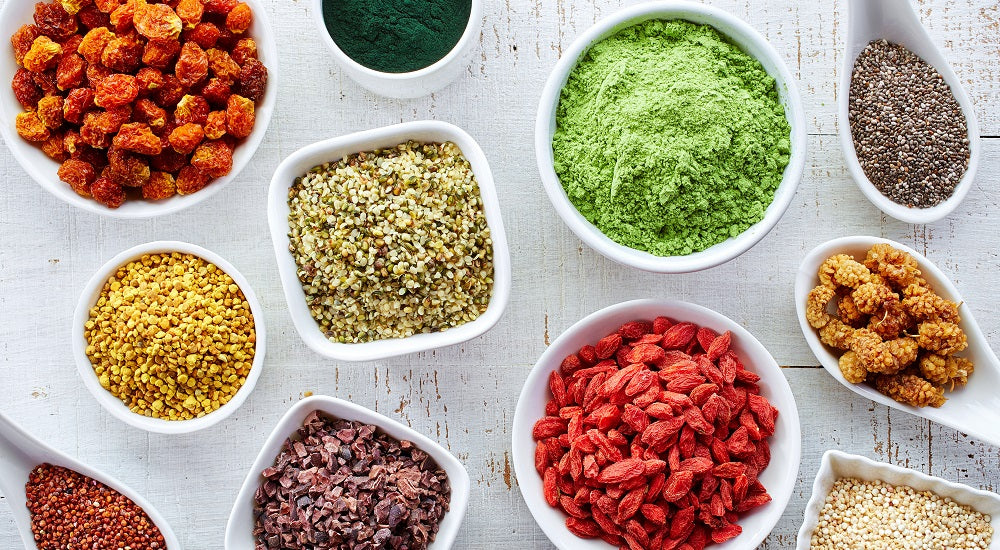Your Cart is Empty
Free shipping on Orders $79+
Free shipping on Orders $79+
Explore

The Top 10 Alternative Sources of Proteins for Vegans and Vegetarians
October 15, 2020 6 min read
If you're familiar with vegan and vegetarian diets, you've likely heard that they often lack sufficient protein.
Our bodies do not store protein, which is unfortunate because it's needed to fuel the creation and maintenance of each and every cell in our bodies. Higher-protein diets help keep you full and also help with weight loss and building muscle.
Since our bodies don't store protein as a fuel source, it's a vital part of any diet or health maintenance plan. It’s not good enough to get protein sporadically; you must get enough protein throughout the day to keep your body healthy.
However, that doesn't mean that you need meat or other traditional protein sources to get what your body needs. All it takes is a well-planned vegan or vegetarian diet.
That’s where alternative proteins come in. Let’s take a look at the top 10 alternative proteins to add to your daily diet.
What Are Alternative Sources of Proteins?
Alternative sources of proteins are non-meat and non-dairy proteins. Most often plant-based, alternative proteins are great sources of protein that help people with dietary restrictions or preferences round out their meals.
Protein can be found in a wide variety of plant foods, but certain plant foods contain quite a lot more protein than others. If you build your diet around foods that don’t contain much protein, you will lose muscle mass, experience fatigue, and your metabolism will slow down.
4 Reasons to Try Alternative Sources of Proteins
Vegans and vegetarians have long relied on protein alternatives to get the nutrients they need, but there are four other great reasons to make the switch to alternative proteins:
- Clean Labels:Now more than ever before, people want to know what's in the food they eat. Most alternative proteins are made from whole ingredients with labels that are easy to understand, unlike most manufactured foods. If you are trying to build your diet around clean labels, plant-based protein alternatives are a great place to start.
- Sustainability: In addition to wanting to know what's in the food they are eating, consumers are also more aware of the environmental impact of the foods they purchase. Plant-based protein alternatives are much more popular these days because they help reduce grazing space for meat production.
- Digestion: Gut health is something nutritionists have been focusing on in recent years. A better understanding of gut health has nutritionists recommending the usual probiotics, but also protein alternatives that aren't as harsh on the digestive process.
- Allergies:Anyone who has food allergies appreciates when companies are transparent about their ingredients. Alternative proteins are often very detailed in listing their ingredients, so those with allergies can always find safe and healthy options.
The 10 Best Alternative Protein Sources
1. Soybeans
Soybeans are a whole source of protein, meaning they give your body 100% of the amino acids it needs. Tofu, edamame andtempeh are all popular alternative proteins that are made from soybeans.
Edamame, which are immature soybeans, is great when boiled or steamed and can often be added to salads or soups.
Tofu is made in a process similar to cheesemaking in which the soybean curds are pressed together. Tempeh, on the other hand, comes from cooking and fermenting more mature soybeans before making them into a patty.
Tofu is so popular because it really doesn't have much taste and instead absorbs flavors from the foods it is prepared with. You can use both tempeh and tofu in a variety of ways, such as burgers, chilis, or soups.
All in all, soybeans are a fantastic and versatile protein alternative.
2. Seitan
Seitan, another very popular alternative protein, is made from gluten and actually retains a meaty texture when cooked. Containing around 25 grams of protein per 3.5 ounces, seitan is probably the richest plant-based protein you'll find.
If you're giving up meat but know you'll miss it, seitan is a great alternative. Not only can it be grilled, but it can also be sauteed and pan-fried, so you can use it in a ton of recipes.
The only drawback to seitan is that those with gluten allergies obviously cannot have it.
3. Most Types of Beans
Beans are well-known for offering high amounts of protein. Chickpeas, black beans, pinto beans, and kidney beans all contain about 15 grams of protein per cup (cooked). Beans are also great sources of fiber, folate, iron, potassium, manganese, and phosphorus.
Beans themselves have been linked to lower blood pressure, better control over blood sugar levels, and lower cholesterol. You can find chickpea and kidney bean sprouts as protein sources in ourPineapple Chia Cleanse andVegan Vanilla Proteini.
4. Lentils
Lentils offer about 18 grams of protein per cup (cooked), making them another great alternative protein. That same amount of lentils will also give you 50% of the fiber you need for the day. The best part about lentils is that they have many uses, including soups and salads.
We briefly discussed gut health above, and lentils are part of the reason why. Lentils contain fiber that feeds good bacteria in your gut, making it healthier. This alternative protein is also known for reducing the risk of diabetes, heart disease, and even cancer. You can find lentil sprouts as protein sources in ourPineapple Chia Cleanse andVegan Vanilla Proteini.
5. Chia Seeds
Chia seeds are more known for their fiber, containing 13 grams per 1.25 ounces. But 1.25 ounces of chia seeds also yields 6 grams of protein, making them a great protein alternative. You'll also find omega-3 fatty acids, antioxidants, calcium, iron, magnesium, and selenium and other nutritious compounds in chia seeds.
We actually love chia seeds so much that we made them a main ingredient in ourPineapple Chia Cleanse - a customer favorite! This unique blend of 15 superfood fibers acts as your daily mini-cleanse to combat bloating and keep your cravings under control.
6. Spirulina
Spirulina is a great source of protein, as well as iron, thiamin, copper, and a variety of other nutrients your body needs. In addition to being a great alternative protein, spirulina also contains phycocyanin, a pigment that offers powerful anti-inflammatory and antioxidant properties. You can find organic spirulina as a great protein source in ourOrganic Pressed Greens.
7. Hempseed
Hempseed is one of the few complete plant proteins, boasting a staggering 18 amino acids. Although it might sound like it has something to do with marijuana, the digestibility of hempseeds is also better than most grains, nuts and seeds.It is also rich in vitamins, minerals and omega-3 fatty acids. Just one ounce of hempseed will give you 10 grams of protein that your body can easily digest. You can find organic hempseeds as a protein source in ourVegan Vanilla Proteini.
Somestudies indicate that the fats found in hempseed are good for reducing inflammation and alleviating symptoms of menopause and PMS.
8. Oats
Oats are one of the more popular and well-known alternative proteins, but they still deserve a spot on this list. Oats aren't a complete protein, but they do offer higher-quality protein than most grains you'll encounter (like wheat and rice).
Why are oats so popular? Because they're delicious and can easily be added to a ton of recipes, like veggie burgers or oatmeal.
9. Quinoa and Wild Rice
Brown rice gets a lot of attention, but quinoa and wild rice (which are actually seeds and not grains) offer 1.5 times as much protein. Wild rice isn't stripped of its bran, making it more nutritious. This is because bran contains a variety of vitamins and minerals as well as fiber. You can find quinoa sprouts as protein sources in ourPineapple Chia Cleanse andVegan Vanilla Proteini.
10. Vegan Vanilla Proteini
Our very ownVegan Vanilla Proteini is the ideal alternative protein, delivering nature's perfect dose of protein with only 100 calories and 5 grams of carbs.
If you take a look at the ingredients inVegan Vanilla Proteini, you'll find several alternative proteins from this list: Hempseed, chia seeds, and chickpea sprouts. But this protein powder gets additional protein from other great sources like peas, cranberry seeds, maca root, sacha inchi seed, and quinoa sprouts.
Vegan Vanilla Proteini is the ultimate protein alternative because it keeps you full, fuels your day, and can be added to your diet inso may ways.
For more SMART lifestyle tips like this, visitwww.smartpressedjuice.com and follow us onInstagram andTwitter, or like us onFacebook. You can also visit ourAmazon store to stock up on our delicious juices.
Statements made on this website have not been evaluated by the U.S. Food and Drug Administration. Information provided by this website or this company is not a substitute for direct, individual medical treatment or advice. It is the responsibility of you and your healthcare providers to make all decisions regarding your health. We recommend that you consult with your healthcare providers regarding the diagnosis and treatment of any disease or condition. Products sold on this website are not intended to diagnose, treat, cure, or prevent any disease.
{"themeColor":"#574CD5","iconColor":"#574CD5","showLogo":true,"topBottomPosition":10,"rightLeftPosition":10,"iconSize":"small","iconCustomSize":64,"position":"bottom-left"}

